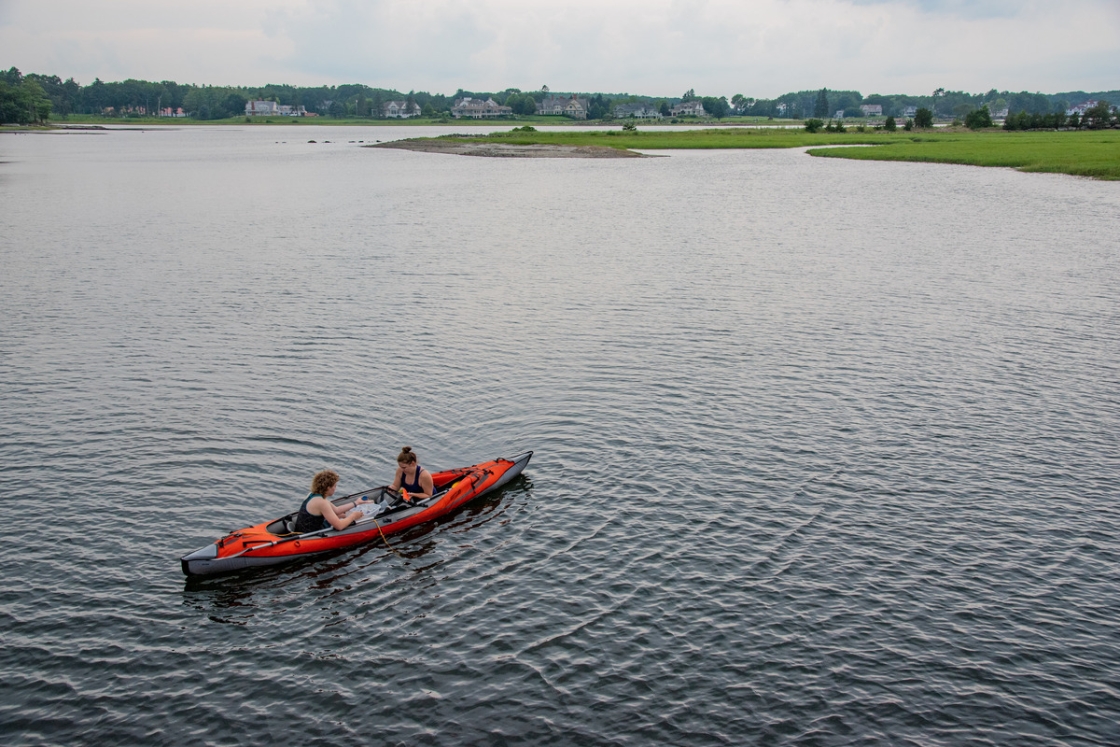As more faculty and students harness the power of technology, Provost David Kotz ’86 has centralized the work of a cadre of learning designers, media specialists, and educational technologists to help faculty support learning in ways that would have been barely imaginable a decade ago.
Erin DeSilva, now the associate provost for digital and online learning, and Joshua Kim, assistant provost for online learning strategy, will coordinate the team within the Office of the Provost and collaborate with partners across all schools, programs, and departments.
“Digital technology provides tremendous opportunities for the way we teach and learn—both for on-campus, in-person learning environments and for online and hybrid educational programs,” says Kotz. “For Dartmouth to continue delivering an outstanding student experience, our faculty needs to keep innovating in the classroom and online. This new structure allows the Dartmouth team to coordinate its efforts across the whole campus, to support faculty who innovate with technology in teaching, and to enable the launch of new online certificate and degree programs.”
The impetus for the restructuring came from the provost’s Ad Hoc Committee for Online Learning Strategy, which began meeting in 2022 in response to the rapidly evolving opportunities of digital technology in higher education. It recommended that a new unit be formed to set priorities and advance a compelling vision for digital and online learning; support and execute institution-wide digital and online initiatives that align with Dartmouth’s mission and values; and review, develop, and implement policies relating to compliance, student support and resources, data management, program design and development, and financial management.
DeSilva says the consolidation of technological expertise and resources comes at a pivotal post-pandemic moment, when people have become more comfortable and adept at meeting in cyberspace while, at the same time, artificial intelligence is beginning to revolutionize research, teaching, and learning.
“From my perspective, what’s most important is that the people who are supporting our online education are the same people who are supporting our residential education,” says DeSilva. “That helps to ensure that students are receiving the Dartmouth experience regardless of where their learning takes place.”
Dartmouth is already in the midst of modernizing about 100 Arts and Sciences and Guarini School of Graduate and Advanced Studies classrooms.
And several of Dartmouth’s schools and programs are expanding access for nonresident learners.
Thayer School of Engineering recently launched an online Master of Engineering in Computer Engineering and also offers an online Professional Certificate in C Programming with Linux. The Geisel School of Medicine offers an online/hybrid Master of Public Health program. The Tuck School of Business offers several online executive education certificate programs, a virtual January session of the Tuck Business Bridge program, and, in partnership with Geisel, two hybrid degrees: the Master of Health Care Delivery Science and the Master of Health Administration degree. The Arthur L. Irving Institute for Energy and Society offers an online course, Energy Justice: Fostering More Equitable Energy Futures.
Kim says innovative opportunities like these are the wave of the future, aligning closely with priorities President Sian Beilock has set to “have a strong impact on higher education and the direction of our post-secondary system—to show up in a world where big and exciting things are happening.”
For example, Kim says it’s important to make rigorous master’s degrees and certificate courses of study available to those who live far from campus, or who cannot afford to leave their jobs in order to advance their studies.
“Traditionally, teaching is a solo sport, but at its best, online instruction takes a team,” says Kim. “Dartmouth has an incredible faculty who are passionate about creating knowledge, and now we can combine them with experts steeped in the literature of learning science, and who understand best practices to bring that learning science into instruction while creating and supporting new communities of learners.”
While much may change in what Kim calls Dartmouth’s “online infrastructure” in the coming years, he says time-tested pedagogical pillars will remain foundational.
“We’ll continue to provide students with a strong liberal arts education based on interactive relationships with teacher-scholars, holding fast to those core values as we make a Dartmouth education available to more people—not just a very lucky few who can live on or near campus,” he says.

